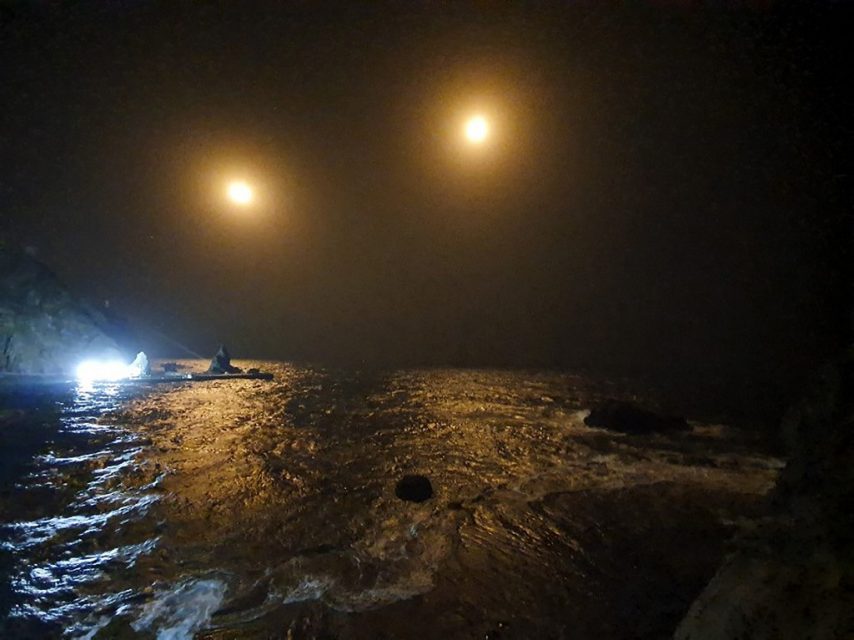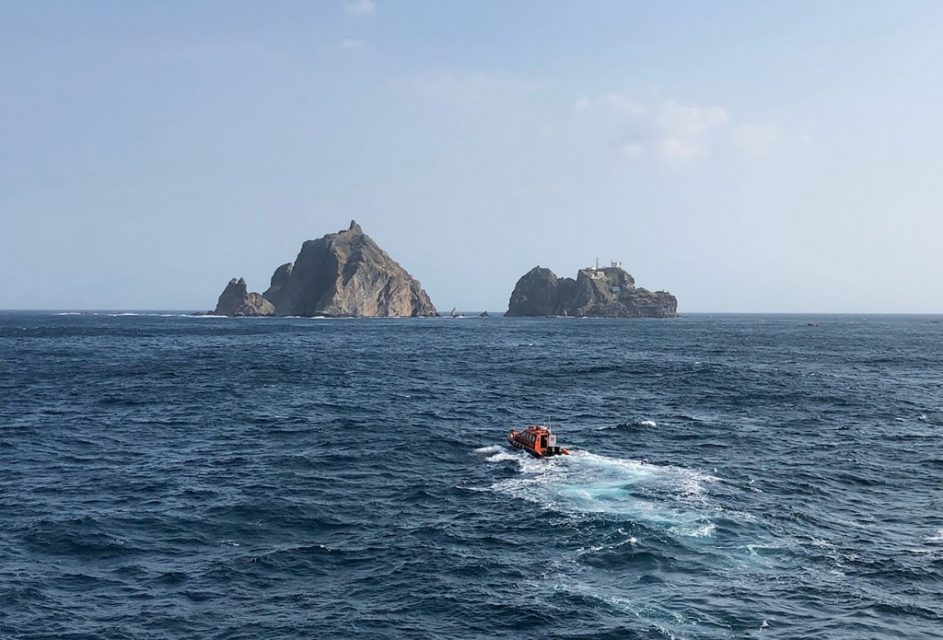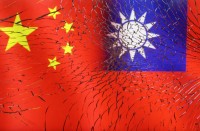
SEOUL, South Korea (AFP) — South Korean rescuers located three bodies believed to be among seven who went missing after their chopper crashed into the sea shortly after taking off from islets disputed with Japan, officials said Saturday.
The helicopter had just picked an injured fisherman up from Dokdo, which is known as Takeshima in Japan, when it went down on Thursday night.
One body was found inside the chopper located at a depth of 72 meters (240 feet), 600 meters south of the islets, while the other two were found in the water nearby, a Coast Guard representative told reporters.
The crashed chopper — which rescuers located on Friday — sat upside down on the seabed, he said, adding its tail had broken off and had been found 110 meters away.
It was not yet possible to identify the three bodies, he said, adding that a search operation was underway to retrieve them and find the other four still missing.
The bodies were found by an unmanned submarine, although divers would attempt to retrieve them manually for fear using the submarine’s “robot-arm” could damage the remains.
“We will do our best till the end to bring those missing back to their families,” he added.

Ships and divers from the defense ministry and members of the National Fire Agency and civilian volunteers have been mobilized for the search operation, authorities said.
The crashed chopper is a Eurocopter EC225, made by the European aerospace corporation Airbus.
The seven people on board were five rescuers, the fisherman and a civilian.
Seoul has controlled the islets in the Sea of Japan — or East Sea — since 1945, when Tokyo’s brutal colonial rule on the peninsula ended, while Japan still claims sovereignty over them.
© Agence France-Presse







